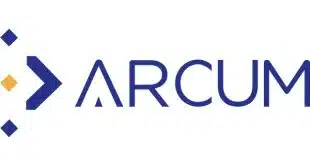Surcharges and discounts for cash aren’t brand-new pricing tactics, but interest in them by independent sales organizations is rising because of falling legal barriers and the potential profits.
Repeated sessions about the topic were packed Thursday at the Western States Acquirers Association annual conference in Scottsdale, Ariz. The presenter was Ryan Sills, director of risk and compliance at Pivotal Payments, a Plano, Texas-based ISO that has a surcharging program.
 “We are seeing a lot of merchants, and a lot of ISOs selling the program,” Sills said. “There’s definitely been more recent pushes on the merchant side [who feel] like they’re always being trapped with fees, and how they can combat that.”
“We are seeing a lot of merchants, and a lot of ISOs selling the program,” Sills said. “There’s definitely been more recent pushes on the merchant side [who feel] like they’re always being trapped with fees, and how they can combat that.”
Presentations about surcharging and cash discounts have drawn strong attendance at other ISO trade shows recently, including the Southeast Acquirers Association’s March conference in Orlando, Fla.
A surcharge, or cash-discount program, can not only reduce merchant expenses, but also pad the profit margins of the ISO that sells it to the merchant, according to Sills. Plus, only seven states now have surcharge bans, down from 10 about a year ago. The reduction is a result of court actions in recent months in New York, Florida, and California, he said.
Surcharges typically are assessed as a percentage of the sale and can only be applied to credit card transactions, not debit purchases. They’re capped at the merchant’s discount rate, with a maximum of 4% of the pre sales-tax amount. Surcharging can be done with online purchases as well as in-store sales, but merchants have to apply the surcharge to all their all credit card transactions. “If you’re going to surcharge you’re not allowed to pick and choose by card brand or by card issuer,” Sills said.
Discounts for cash are permissible in all 50 states, and they can be offered with debit cards.
With either a surcharge or discount for cash, ISOs and merchants have to be careful with implementation so as not to run afoul of network rules. The rules require prominent disclosure and clear wording to distinguish a surcharge from a cash discount. If the price goes up at checkout, “the card brands will view that as a surcharge,” despite what the merchant calls it, Sills said.
Merchants sometimes have confusing signage regarding surcharges and discounts, and Sills noted that enforcement of applicable rules has been uneven. “You’re going to get some merchants who just get away with it, you’re going to get some ISOs who get away with it,” he said. But if a notice of violation comes down to an ISO through a card network and the ISO’s sponsor bank, the merchant will have to sign an attestation that it will comply with the rules within 30 days “or you risk losing the merchant account,” he said.
So-called convenience fees are separate under the network rules from surcharges and discounts for cash. Such fees typically apply to certain merchant categories, such as utilities and government, and usually involve flat fees no matter the purchase amount, according to Sills.




